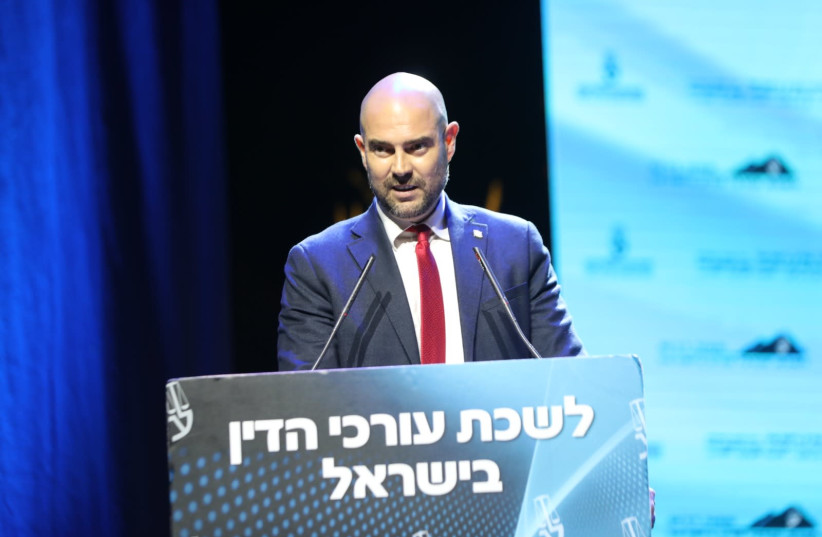Israel Bar Association election candidates made their final appeals to the nation’s attorneys on Monday before Tuesday’s elections for its chairmanship and positions on the governing committees.
The Bar said that Tuesday will see 77,201 lawyers able to go to one of 171 polling stations across 67 towns in Israel, and submit up to four differently colored ballots for the chairman, National Council, local district committee and district chairman.
The attorney that is named the most on the blue ballots will serve for four years as the Bar chairman – provided that they receive at least 40% of the votes.
Six district committees to represent
The Bar has six district committees to represent Jerusalem, Tel Aviv, Haifa, and the North, South and Center. Each committee has between 10 and 20 members who are voted for with green ballots, and a chairperson selected by pink ballots. The National Council has 28 members, who are chosen with yellow ballots.

Counting of votes will begin once the ballots close, and the winners will only be declared on Wednesday.
A digital billboard at the foot of the Azrieli Towers lit up on Sunday night with interim Bar chairman Amit Becher’s face and name, urging attorneys to cement his leadership and vote for members of his “Hope for the Bar” list to the organization’s committees.
“The Bar Association elections are critical to protect the basic principles that were established by the founding fathers of the Jewish and democratic state,” he said in a campaign video on Thursday.
Becher has been outspoken against the judicial reform, which has impacted the election campaigns due to the Bar’s role in the judicial appointment process. The Bar currently has two representatives on the Judicial Selection Committee, and Justice Minister Yariv Levin’s judicial reform plan would see them removed from the panel.
The National Council elects the representatives to the committee, which is why deputy Bar chairman Itzhak Natovich’s Zionist Legal Initiative list has highlighted the importance of the election of its members to the council.
The Zionist Legal Faction made its final pitch based on the political environment in the attorney community. While the judicial reform wasn’t explicitly mentioned, the list said that a vote for them would mean a climate in which all political opinions could be heard.
Last Thursday, the faction signed a National Council mandate sharing agreement with former Bar head Efi Nave and his list.
A demonstration against Nave was held Sunday night in front of courthouses across the country, organized by the Movement for Quality Government in Israel and several protest groups. MQG had previously petitioned for the State Attorney’s Office to file an ethics complaint against Nave’s run over his past conviction and sex scandal. Nave had been convicted of sneaking his partner past Ben-Gurion Airport customs, and had resigned over accusations that he had accepted sex bribes for judgeship recommendations.
“The convicted are not allowed to appoint the judges,” MQG said without naming Nave. “We call on the lawyer community to vote in favor of clean hands in the Bar Association, and not to give their vote to the corrupt.”
Shas came out in support of Nave on Saturday night, according to party MK Erez Malul.
“We are facing fateful elections for the head of the Bar Association,” said Malul. “Whoever wins will have a decisive influence on the appointment of judges in the State of Israel and on the Jewish identity of the state.”
Nave attacked Becher on Monday, saying that he would make the Bar subservient to the State Attorney’s Office. Nave promised that unlike his rival he would strengthen the association, and continue projects from his previous tenure in which he created international collaborations and bolstered the Arab community’s lawyers.
The former Bar head has attacked Becher for politicizing the association, but has said that he is against the reform in its current manifestation.
